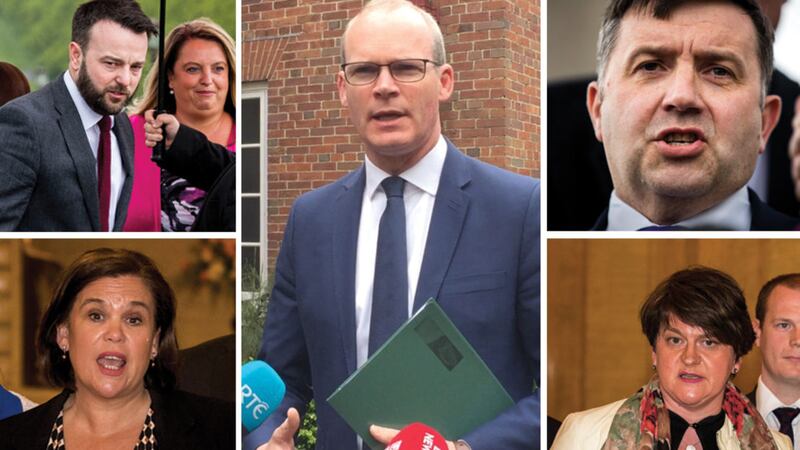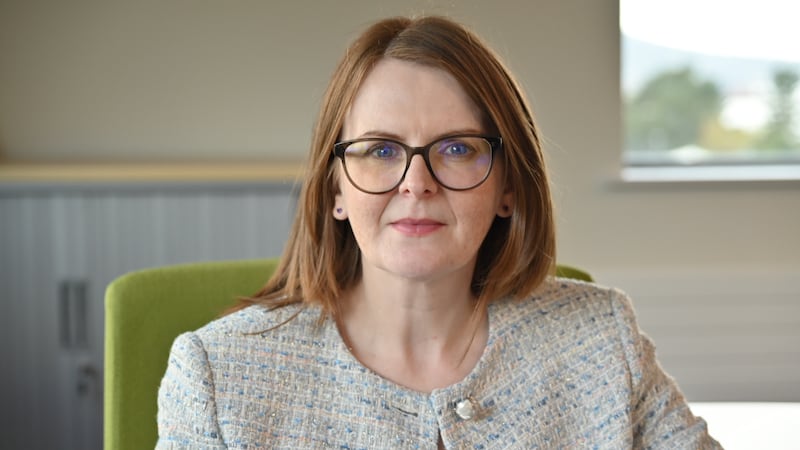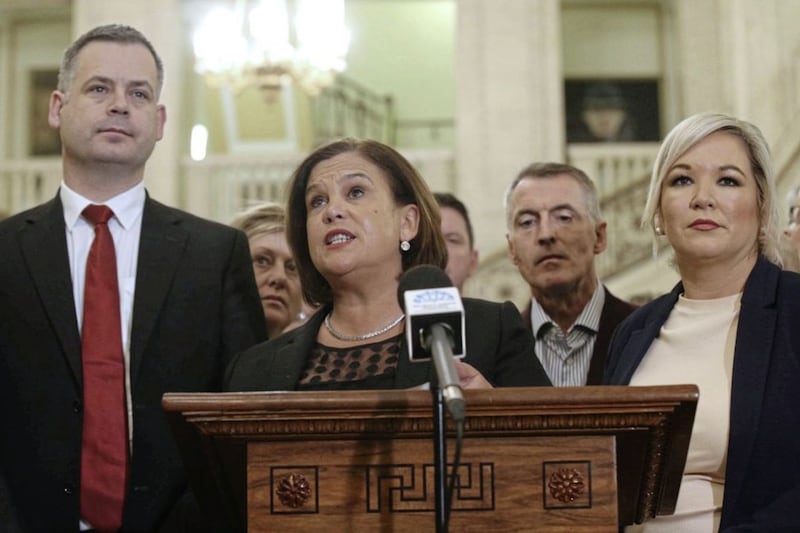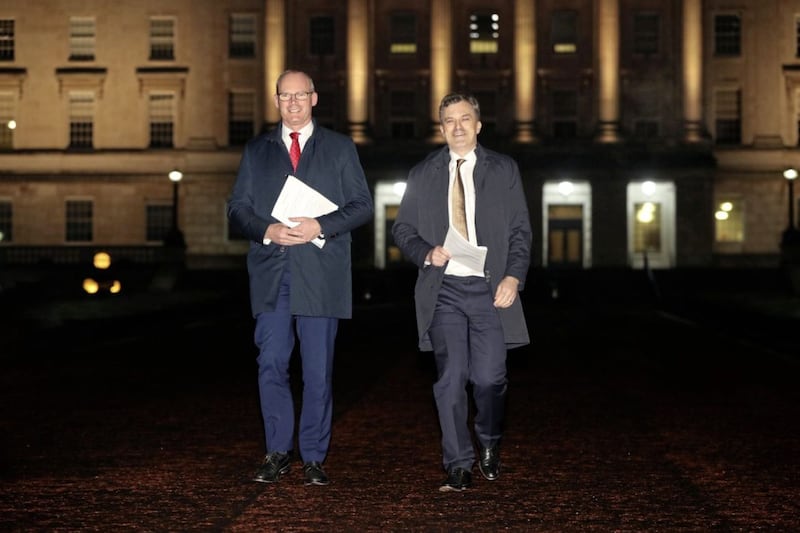THE five main parties have “a lot of work to do” before Stormont can be restored, the tánaiste warned as fresh talks aimed at restoring devolution began.
The parties met at Stormont yesterday for the first round-table discussions in more than a year. In a joint statement, the Irish and British governments set out details of how the talks will proceed including the setting up of working groups to deal with difficult issues.
Tánaiste Simon Coveney batted away reports that power-sharing could be restored by the middle of next month, saying: “We’ve a lot of work to do between now and then.”
The joint plan was unveiled yesterday as the main parties came together at Stormont for their first official roundtable discussions for more than a year.
The fresh round of talks, which come nearly two-and-a-half years after devolution collapsed, were announced last month in the wake of the murder of Lyra McKee by dissident republicans.
British and Irish govt briefing note on the Stormont talks ?? here’s what they’ve agreed for next few weeks pic.twitter.com/99NGFg3MhP
— Jayne McCormack (@BBCJayneMcC) May 7, 2019
The last round of negotiations broke down at the eleventh hour in February 2018 when the DUP rejected a draft deal that included measures to safeguard and promote the Irish language.
Read More
- Sinn Féin claims British pledged to legalise same-sex marriage
- Brian Feeney: Suspending petition of concern plain stupid (premium)
- Analysis: DUP isolation doesn't auger well for devolved government
Appearing better structured and with what is ostensibly clearer timeframe than in the past, the latest talks come in the midst of campaigning for the European election, which takes place on May 23.
In a brief appearance after the roundtable meeting, Secretary of State Karen Bradley said nobody should be "under any illusions" about the process.
NI Secretary of State Karen Bradley says she ‘won’t be commenting’ on the latest round of Stormont talks while they’re ongoing. pic.twitter.com/LDwhGH6Fez
— Damien Edgar (@damien_edgar7) May 7, 2019
"There are some very significant challenges and this is not going to be easy, and therefore I'd ask that we all give the parties time and space to allow them to address these difficult issues and to come to the right conclusion for the people of Northern Ireland, which is the restoration of devolution," she said.
During the meeting with the parties, the two governments outlined the format of the negotiations, which will be carried out "in accordance with the well-established three stranded approach".
The party leaders will meet at least once a week to assess progress, while the process will be reviewed by Taoiseach Leo Varadkar and British Prime MInister Theresa May at the end of the month.
Read More
- George Hamilton accuses politicians over policing confidence
- Brexit Common Travel Area deal to be signed by governments
In parallel, five working groups will be convened to discuss the main stumbling blocks to agreement and measures that will make any restored executive more sustainable.
Consisting of three party representatives and advised by officials from both governments, the groups are expected to meet for the first time this week.
The working groups will focus on:
- Programme for Government – chaired by civil service head David Sterling, this group will examine the issues that will confront any restored executive, such as health and education, industry, and investment;
- Transparency, accountability and the operation of the executive – led by Department of Finance permanent secretary Sue Gray, this group will examine various proposals for reforming the institutions;
- Reform of the petition of concern – chaired by government solicitor Hugh Widdis, it will look at potential changes to Stormont's veto mechanism;
- Rights, language and identity issues – led by former Department of Culture permanent secretary Paul Sweeney, this group's remit wasn't spelt out by the governments but it expected to focus on language and marriage equality;
- Improving the sustainability, stability and operation of all the Good Friday Agreement institutions – headed by retired civil service head Malcolm McKibbin, it will look at governance and how to make any future institutions more sustainable.
After the initial discussions, DUP leader Arlene Foster described the engagement as a "good first meeting".
"It has to of course be a balanced way forward and one that everyone in Northern Ireland is comfortable with, whether they are unionist, nationalist or indeed other – and I think that's very important," she said.
Sinn Féin leader Mary Lou McDonald said her party was ready to "do the business".
"The current stalemate is not acceptable and not sustainable, there are outstanding issues that need to be resolved, and we believe they can be resolved," she said.
SDLP leader Colum Eastwood warned that the new talks should not be "privatised" into bilateral negotiations confined to the two largest parties, while Ulster Unionist leader Robin Swann said the process must not be just "window dressing".
Alliance leader Naomi Long said the process was "not about putting a sticking plaster over a gaping wound".
"It's about doing the reform that is required so that we can restore devolution that's sustainable in the long term," she said.







